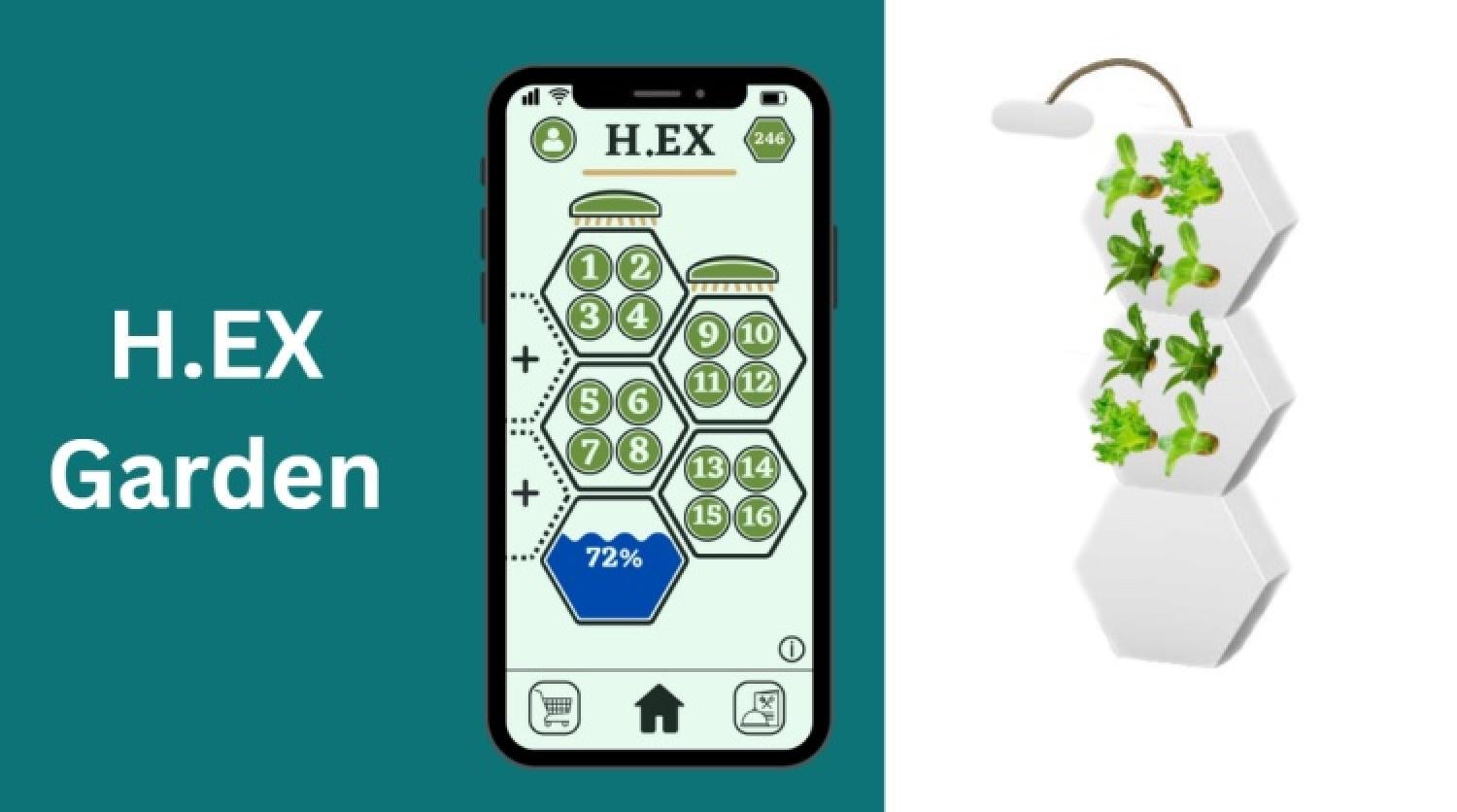CU Boulder students develop a consumer hydroponics system for those without a green thumb
Produce sold in grocery stores and supermarkets reportedly lose 50% of their nutrients during transportation, while also containing alarming levels of chemicals and pesticides. But for many would-be gardeners who would like to grow their own produce and eat healthier, there are three main barriers that impede them from doing so – time, gardening expertise and physical space.
A group of graduating mechanical engineering students at the University of Colorado Boulder want to remove these barriers by designing a consumer hydroponics system called Hydroponics Excellence, or H.Ex, which features a wall-mount design and connects to a phone app that keeps track of the heath of a user’s garden.
The team of students from the Paul M. Rady Department of Mechanical Engineering designed and built the prototype for their capstone senior design project.
“Our team wants people to grow and pick their fruits and vegetables right off their own wall,” Project Manager Alex Granquist said.
Hydroponics is a method of growing plants that uses water-based nutrient solution rather than soil. H.Ex uses a form of hydroponics called the drip system, which pumps nutrient-rich water from a reservoir underneath the plants and trickles over them in a continue cycle.
“Hydroponics as an irrigation system uses up to 10 times less water than more traditional methods of farming,” Granquist said. “It helps reduce drought and climate change in addition to getting people to eat healthier.”
H.Ex distinguishes itself from similar products on the market with its wall-mount feature, which saves counter and ground space and makes the possibility of homegrown produce much more realistic for the urban dweller. The hexagonal design is also modular, with the option of adding auxiliary units and growing anywhere from eight to 36 plants.
Watch their video here:
[video:https://www.youtube.com/watch?v=LvCbjnlmcpM]
But you also need a green thumb to make sure plants thrive. “Taking care of plants is extremely difficult,” Granquist said. “I’ve killed succulents before.”
Through the product’s app connectivity, the user can receive updates that indicate when they need to perform system or plant maintenance. “We have sensors that monitor lighting, water levels, water circulation cycles, and nutrient solution concentration,” Logistics Manager Ben Hofstra said.
A user can leave their plants for up to two weeks after making the proper adjustments and maintenance.
The team pitched their product at the New Venture Challenge (NVC), a cross-campus program and competition that gives aspiring entrepreneurs a chance to build a startup through events,programming, community support, mentorship and funding.
H.Ex won the climate-focused section of the event and came in second for the female founders section, winning a total of $7,000 dollars.
With the three main barriers that prevent people from eating healthier removed, the team hopes that having access to a healthy garden will be the norm in the future.


